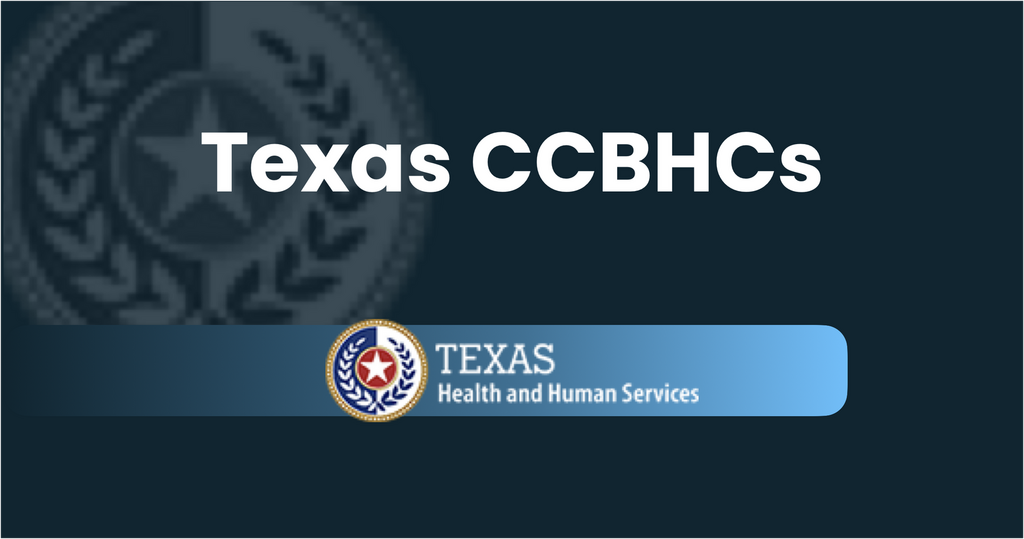
What is up with Texas CCBHCs??
Last week, the Mend Team was able to attend the Texas Council of Community Centers’ annual conference. Without a doubt, everyone needs to know about T-CCBHCs.
Certified Community Behavioral Health Clinics (CCBHCs) in Texas are setting a gold standard in mental health and substance use treatment. By adopting a proactive and integrated approach, these clinics are improving access to services, reducing patient no-shows, boosting revenue, and alleviating provider burnout. Let’s explore how the Texas CCBHC (T-CCBHC) initiative exemplifies proactive problem-solving and celebrates its impact on mental healthcare access for all.
A Proactive Model with Sustainable Funding
The Texas CCBHC initiative, launched in 2016 by the Texas Health and Human Services Commission (HHSC), aligns with federal CCBHC principles while addressing the unique needs of Texas’ diverse communities. The initiative has ensured that every county in Texas is served by at least one CCBHC, demonstrating a statewide commitment to accessible and comprehensive mental health services.
CCBHCs in Texas benefit from a sustainable funding model through Medicaid, which reimburses clinics at higher, more competitive rates. This financial stability allows CCBHCs to offer a wide range of services without the constraints of fragmented billing codes. This approach ensures that clinics can invest in the necessary resources to provide high-quality care, ultimately improving patient outcomes and access.
Enhancing Patient Engagement and Reducing No-Shows
One of the standout features of Texas CCBHCs is their commitment to timely and comprehensive care. CCBHCs are required to provide crisis services 24/7 and ensure routine outpatient care within 10 business days. This proactive scheduling reduces wait times and encourages patients to keep their appointments, significantly reducing no-show rates.
Supporting Providers and Preventing Burnout
Texas CCBHCs also focus on supporting healthcare providers, recognizing that a healthy, supported workforce is crucial for delivering quality care. By integrating comprehensive community recovery supports, such as peer support and family counseling services, CCBHCs create a supportive work environment. This team-based approach helps distribute the care burden, reducing stress and burnout among providers.
Celebrating Success: Impact on Communities
The Texas CCBHC initiative has demonstrated remarkable success in improving mental healthcare access. For instance, by coordinating with social services, criminal justice, and education systems, Texas CCBHCs provide a holistic approach to care that addresses the complex needs of their communities. This integration not only improves individual health outcomes but also enhances overall community well-being.
Highlighting Success Stories
Several organizations exemplify the proactive and integrated approach of Texas CCBHCs:
- Bluebonnet Trails Community Services: Known for its comprehensive mental health and substance use disorder services, Bluebonnet Trails has been a beacon of hope for many communities, ensuring timely access to care and supporting overall health outcomes. Learn more about Bluebonnet Trails.
- Harris Center for Mental Health and IDD: This center has made significant strides in integrating primary care screenings with behavioral health services, reducing emergency room visits and improving patient engagement. Learn more about Harris Center.
- Spindletop Center: Spindletop has been pivotal in providing robust mental health services to its community, focusing on crisis intervention and outpatient care, which helps in reducing hospitalization rates and improving patient care continuity. Learn more about Spindletop Center.
- Community Healthcore: This organization stands out for its comprehensive approach to mental health and substance use services, incorporating peer support and family counseling to foster a supportive environment for both patients and providers. Learn more about Community Healthcore.
- Border Region Behavioral Health Center: Serving Webb, Zapata, Jim Hogg, and Starr counties, Border Region has utilized federal funds to enhance its services and expand its reach, ensuring more comprehensive care for underserved communities. Learn more about Border Region Behavioral Health Center.
- Texoma Community Center: Known for integrating primary and behavioral healthcare services, Texoma Community Center has improved patient outcomes through timely interventions and robust support systems. Learn more about Texoma Community Center.
Conclusion
The Texas CCBHC initiative stands as a shining example of proactive problem-solving in mental healthcare. By ensuring sustainable funding, timely access to comprehensive services, and strong support for providers, Texas CCBHCs are transforming the mental health landscape. This model not only improves patient outcomes but also sets a benchmark for other states to follow in making mental healthcare accessible for all.
For more information on the Texas CCBHC initiative and its impact, visit the Texas Health and Human Services website and the SAMHSA website.